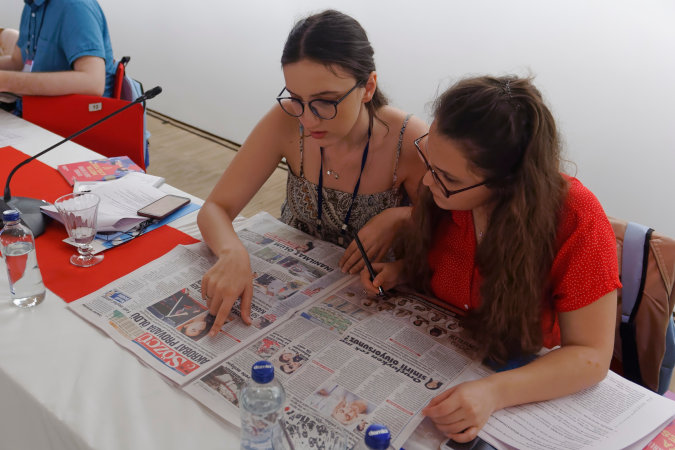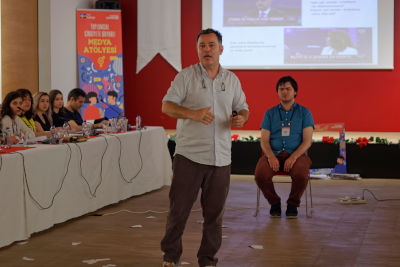University students examine how the media portrays gender in Turkey
Date:

On 24 May, University students studying communication at five different institutions got the chance to explore how gender is portrayed by the Turkish media during a recent Gender Responsive Media Training, organized by UN Women at the Erimtan Museum in Ankara, Turkey.
Nearly 40 students from Ankara University, Hacettepe University, TED University, Gazi University and Hacı Bayram Veli University came together to discuss gender equality, the portrayal and representation of women and the language used in media, with a focus on the coverage of women politicians.
In her opening remarks, Zeliha Ünaldı, Programme Manager at UN Women in Turkey, set the scene with information about gender and the 2030 Sustainable Development Agenda. Before, Professor Nezih Orhon, the workshop moderator, made presentations on the portrayal of child, early and forced marriages, refugee women, violence against women, women’s leadership and political participation in the media.
The students were asked to consider: ‘Does news have gender?’ as they discussed the sexist language often used in sports, music, politics, news and in the representation of women politicians in the media. The workshop aimed to raise participants’ awareness about gender responsive journalism. They also discussed the reproduction of gender stereotypes within media as a key barrier standing in the way of gender equality and women’s rights.

Following the event, a number of students, like Merve Güven, a journalism student at Ankara University shared their experiences. “I realized that male domination in media creates inequalities. I learned new concepts. The workshop helped me widen my perspective,” said Güven.
“I participated this training because I realized how important the reproduction of gender roles through media is for the future of children. It was very beneficial for me to work with a qualified workshop instructor,” said Rahime Pınar, a graduate student on cultural studies and media from Hacettepe University.
Meanwhile, Alper Duru, a radio, television and cinema student from Ankara University, said that he had worked on gender equality and women’s rights. “Participating in this workshop helped me to become more aware of the status of women in Turkey,” he said.
Oğuzhan Yelgen, a radio, television and cinema student from Hacı Bayram Veli University said that the training contributed to his knowledge too. “In this workshop I understood concepts like gender inequality and I would like to work in this field in academia. I would like to thank UN Women for this workshop,” said Yelgen.
The workshop was organized as part of the Gender Equality in Political Leadership and Participation in Turkey project, funded by the Swedish International Development Cooperation Agency. Further workshops are planned for later in 2019 and in 2020 for students from different universities in different cities.